Reasons and facts: Why are house prices in Uzbekistan rising sharply?
In recent years, the price of real estate in Uzbekistan has increased several times. Prices may increase even more in the near future under the influence of several factors.
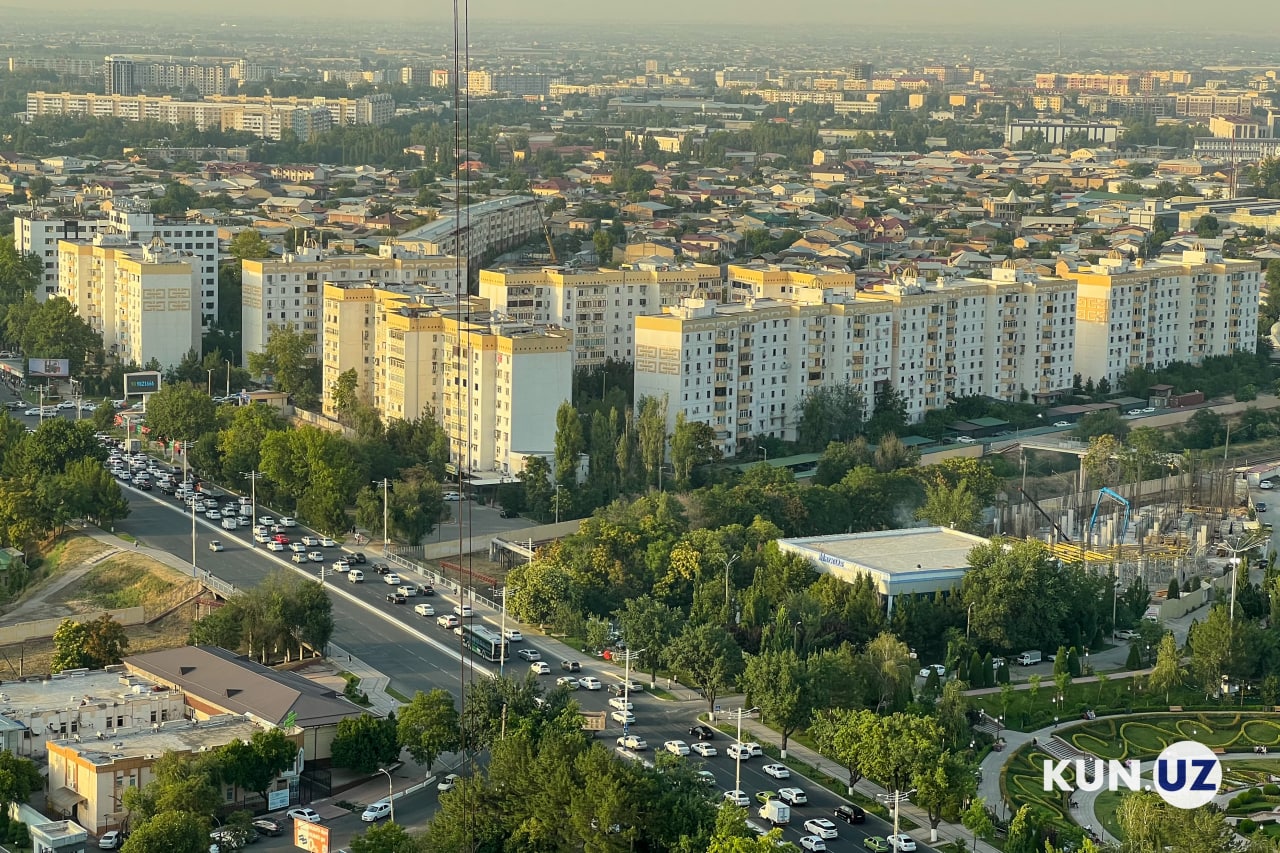
Фото: KUN.UZ
According to the Center for Economic Research and Reforms, in January-August 2022, house prices rose by 13% in Tashkent city and by 7% across the country. According to the CB analysis, the price increase in the primary market in the first quarter of this year was 4.6%, in the second quarter it was 2.4%, the price increase in the secondary market was 10% in the first quarter, and 2% in the second quarter.
As of July 1, the highest average value of housing prices in the primary market in the region was recorded in Tashkent city (9 million 9 thousand soums per 1 square meter), Samarkand (8 million 16 thousand soums) and Tashkent (5 million 568 thousand soums) regions, the most low prices – in Khorezm (3 million 168 thousand soums), Jizzakh (3 million 495 thousand soums) and Syrdarya (3 million 557 thousand soums) regions.
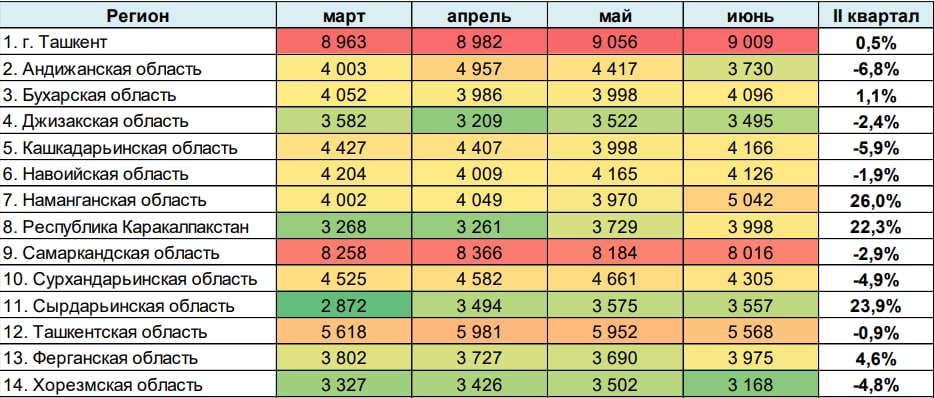
As of September 1, the highest average value of housing prices on the secondary market in regions was recorded in the cities of Tashkent ($836 per 1 square meter), Samarkand ($568) and Navoi ($475), while the lowest prices were observed in the cities of Nukus ($305), Jizzakh ($310) and Gulistan ($311).
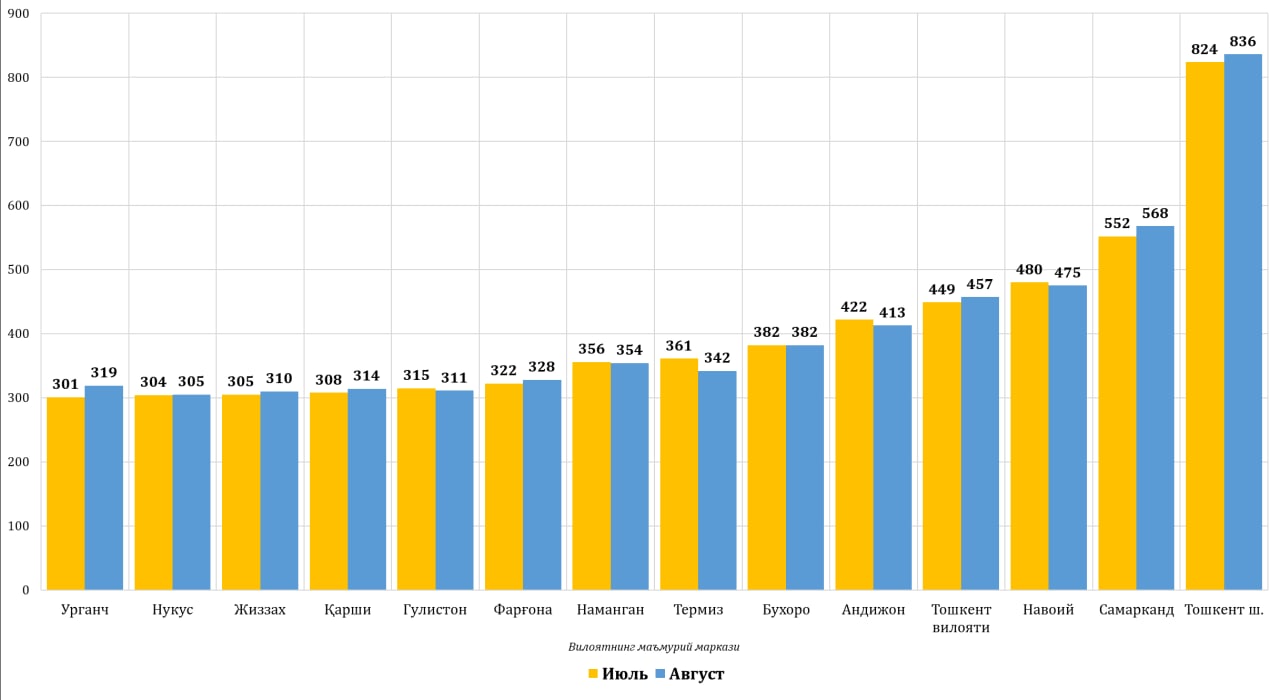
Why did housing prices soar?
Over the past 5 years, real estate prices in Uzbekistan have risen sharply. For example, in 2018, according to the conclusion of the state expertise, the price of 1 square meter of multi-apartment housing amounted to 3 million 982 thousand soums, and now this figure is higher than 9 million soums. Several factors may have contributed to this.
First, the increase in the price of basic building materials. In particular, in 2017, 1 ton of cement was 135,000 soums, and in 2018 – 305,000 soums. As of September 27 of this year, 1 ton of cement is being sold at 602,000 soums.
Also, as a result of the liberalization of the currency policy, the increase in the price of imported building materials and equipment also influenced the increase in the prices of housing construction.
Second, the increase in the process of urbanization. In recent years, urbanization has been encouraged, it is expanding. In the context of the expansion of district and regional centers, as well as the capital, there is an increase in demand for housing. If urbanization had started earlier in Uzbekistan, the demand would have increased earlier. Now, real estate prices have skyrocketed to meet the growing demand associated with urbanization.
Thirdly, the middle class is the largest group that creates demand for housing. Due to the relative increase in the weight of this category of people and the abolition of the “propiska” (“residential permit”) system, which has been a painful problem for years and has been subject to constant criticism, there has been an opportunity and incentive for citizens from other regions to work in Tashkent city or region and buy real estate.
In addition, several other aspects may influence the increase in housing prices in the near future. By the appropriate decision of the government, the procedure for the privatization of the land belonging to the citizens was approved, that is, the market price of the land will be formed in the future. This causes land prices to rise at a very high rate. In turn, the price increase affects the price of apartments.
Also, by the presidential decision, from November 1, 2022, it will be allowed to allocate mortgage loans and subsidies for houses in the “box” (“incomplete”) condition. This can also increase the existing demand in the market.
Rising demand for real estate as a safe-haven asset, rising devaluation expectations amid geopolitical instability, and double-digit inflation are likely to continue to put pressure on house prices.
What are the prices in neighboring countries?
As of July of this year, the price of 1 square meter of real estate in the capitals of Central Asian countries was as follows:
- in Ashgabat – from $2,867 to $3,055;
- In Astana – from $835 to $1100;
- in Bishkek – from $830 to $900;
- in Tashkent – from $825 to $900;
- In Dushanbe – from $405 to $650.
Rental prices
The housing rental market in the city of Tashkent is growing due to the rising prices of housing purchases. On the one hand, the number of foreigners and nationals entering the capital is increasing significantly, on the other hand, more landlords are starting to rent real estate. The profitability of the rental business (rental yields – income obtained by renting out a house in one year) for the city of Tashkent is 10%, that is, the purchased apartment provides its value in 10 years. For comparison, this number is 6% in Romania, 5% in Poland, 3% in Germany, and 2% in Turkey.
According to the analysis of CERR experts in July-August, the average rent price in Tashkent was $339.
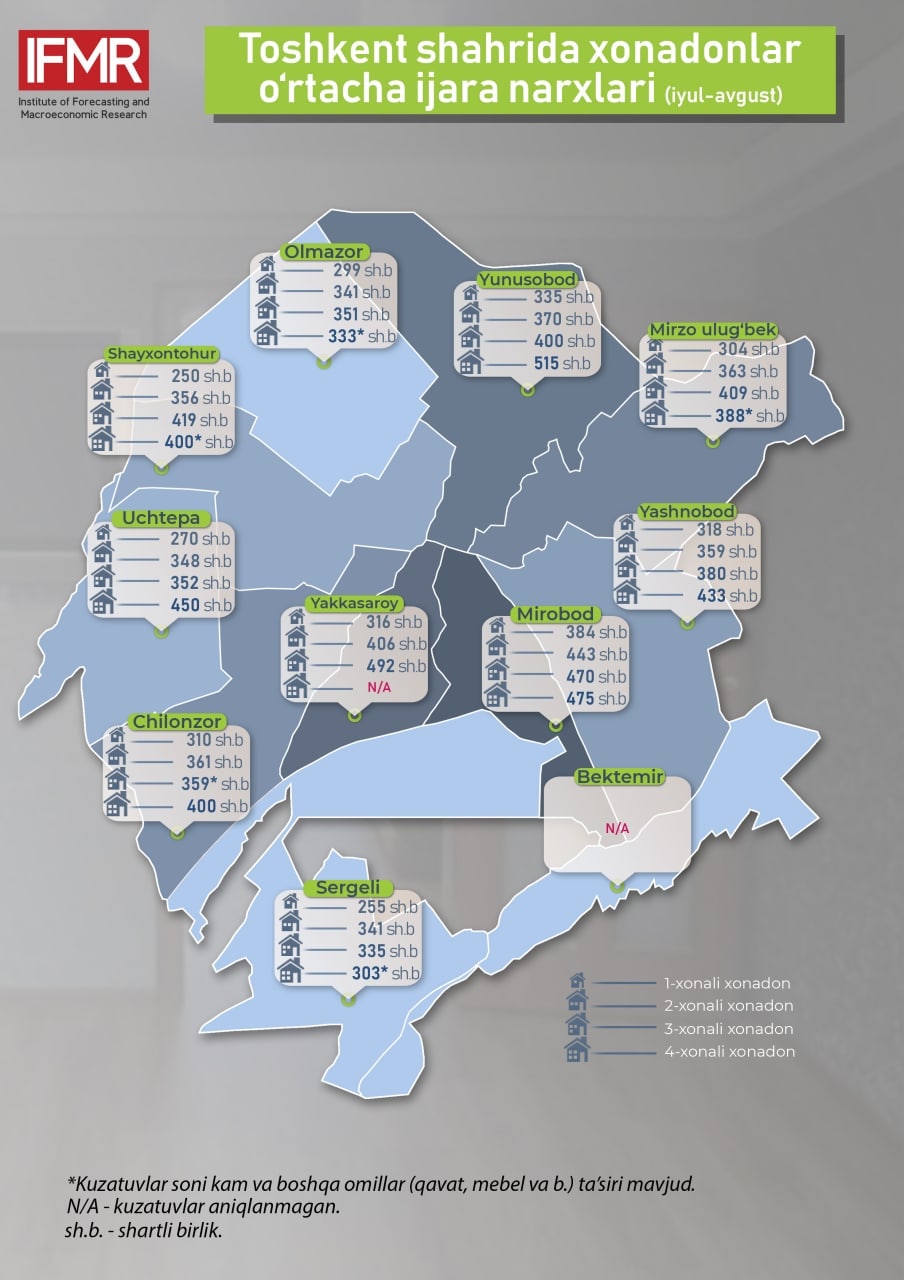
Let’s compare incomes and rental prices for the example of budget employees whose official salaries are disclosed:
The head of a young family is a doctor, his wife is a teacher, and they have one child. The husband earns about 2.4 million soums (the average salary in the health sector), and the wife earns 2.5 million soums. Even if they live in a rental in the minimum budget option, it is clear that about 75% of the family income needs to be spent on rent.
Currently, many people from Russia and Ukraine are coming to Uzbekistan for temporary (perhaps permanent) residence. The fact that most of them are renting apartments has created a serious growth and shortage in the rental sector. Also, there are those who are buying real estate because of the high cost of rent, or because of connecting future plans with Uzbekistan. This creates a temporary or continuous demand and affects the increase in prices. Since the beginning of the year, the number of requests to buy or rent real estate in Azerbaijan, Armenia, Georgia, Kazakhstan and Uzbekistan by people who left Russia has increased by 2.2 times compared to last year.
Summary
Housing and rental prices in Tashkent are significantly expensive compared to the income of the population. To buy an average house, you need to spend 50 times the GDP per capita. But at the same time, breaking the market rules and trying to artificially lower the price of apartments can also have a negative effect. In this case, efficiency, that is, profit-oriented players will leave the housing market. Funds will not enter the housing market. That is, investors (foreign, domestic) will leave the market. Imagine if you fixed the price of a certain good, the incentive to produce that good would disappear.
The main task of the state is to ensure inclusive economic growth in order to increase the income of the population, to fight against artificially high prices of other goods (monopolies) in the conditions of high housing prices, which is the main need. It is necessary to ensure the openness of the construction materials market and high competition in it, to create the necessary infrastructure for house builders.
Recommended
List of streets and intersections being repaired in Tashkent published
SOCIETY | 19:12 / 16.05.2024
Uzbekistan's flag flies high on Oceania's tallest volcano
SOCIETY | 17:54 / 15.05.2024
New tariffs to be introduced in Tashkent public transport
SOCIETY | 14:55 / 05.05.2023
Onix and Tracker cars withdrawn from sale
BUSINESS | 10:20 / 05.05.2023
Latest news
-
New wind power plant to be built in Tashkent region
SOCIETY | 21:21 / 04.07.2025
-
Shavkat Mirziyoyev holds talks with Shehbaz Sharif, discusses strengthening Uzbekistan-Pakistan strategic partnership
POLITICS | 19:04 / 04.07.2025
-
Senate of Uzbekistan signs cooperation program with UN Population Fund
POLITICS | 19:02 / 04.07.2025
-
Shavkat Mirziyoyev calls for end to violence in Gaza, urges recognition of Palestinian state
POLITICS | 17:31 / 04.07.2025
Related News
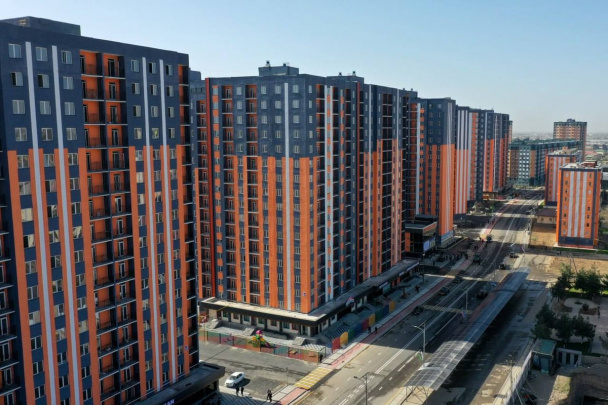
15:47 / 03.07.2025
Uzbekistan moves to legalize informal brokers and digitize real estate deals

11:20 / 30.06.2025
Uzbekistan plans to ban cash payments in real estate transactions

12:33 / 27.06.2025
Unmasking colonial myths: Uzbekistan’s historians unveil Russian Empire’s 1865 Tashkent atrocities
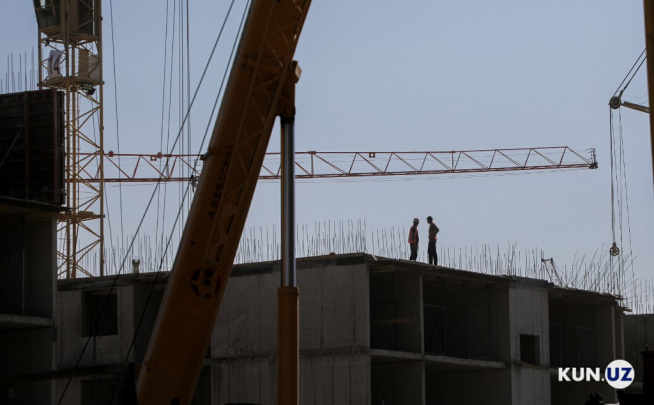
11:38 / 27.06.2025



